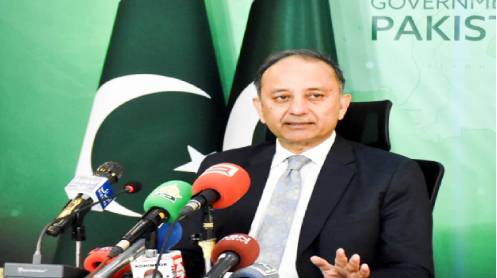In a bold step towards digital transformation, the Government of Pakistan has allocated 2,000 megawatts (MW) of power to support Bitcoin mining and AI data centres, marking a major shift in energy utilization and positioning the country as a future hub for global digital infrastructure.
“Pakistan is uniquely positioned — both geographically and economically — to become a global hub for data centres,” said a statement issued by the Pakistan Cloud Computing (PCC) initiative. Describing Pakistan as a digital bridge between Asia, Europe, and the Middle East, the statement highlighted the country’s strategic location for international data flow and digital services.
Since the establishment of PCC, global interest in Pakistan’s digital potential has surged. Numerous international companies in the Bitcoin and AI sectors have already visited for exploratory talks, with more expected in the coming weeks.
The government aims to repurpose underutilized power generation capacity for high-demand digital uses. By redirecting idle energy from power plants operating below capacity, Pakistan plans to convert financial liabilities into sustainable, revenue-generating assets.
PCC CEO Bilal Bin Saqib called the initiative “transformative,” explaining that with the right regulations, transparency, and international cooperation, Pakistan could emerge as a global leader in crypto and AI technologies. He further noted that this approach would allow the country to earn foreign exchange through Bitcoin mining and even accumulate digital assets like Bitcoin into a national wallet — shifting from local rupee-based revenue to digital asset-backed economic stability.
Pakistan’s competitive advantage is clear: while power and land costs rise in countries like India and Singapore, Pakistan offers affordable energy and scalable land, making it a prime destination for digital infrastructure.
Globally, demand for AI data centres has exceeded *100 gigawatts, while supply remains at just *15GW — a gap Pakistan is uniquely poised to fill. This is further supported by the recent landing of the Africa-2 Cable Project, the world’s largest submarine internet cable, which boosts the country’s internet bandwidth, latency, and operational resilience.
With over *40 million crypto users, Pakistan is well-positioned to become a regional digital leader. Local AI data centres are expected to **enhance data sovereignty, strengthen cybersecurity, and generate *thousands of jobs across engineering, IT, and data science sectors.
This initiative marks the first phase of a broader digital infrastructure rollout, which will include renewable-powered facilities tapping into Pakistan’s vast wind (50,000MW potential), solar, and hydropower resources. Strategic partnerships with global blockchain and AI firms, as well as the development of fintech and innovation hubs, are also planned.
To attract investment, the government is proposing *tax holidays, *customs duty exemptions on equipment, and reduced tax rates for AI infrastructure developers.
With its unique combination of surplus power, geographic advantage, enhanced connectivity, renewable potential, and a digitally engaged population, Pakistan is positioning itself as a key regional player in Web3, AI, and next-gen technological innovation.
Story by Tahir Sherani







